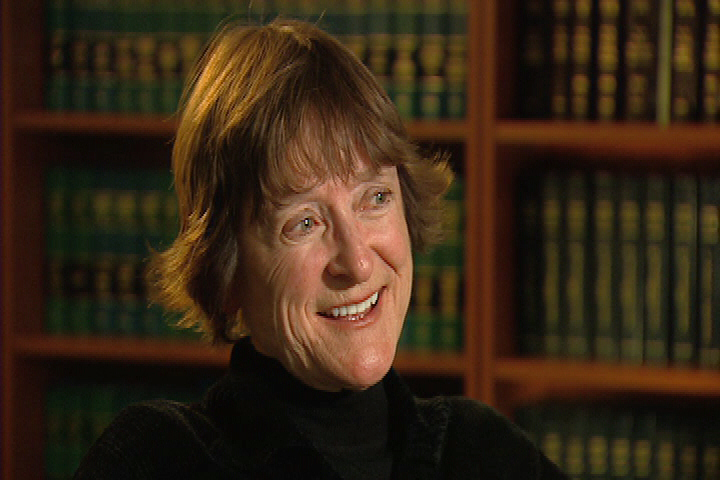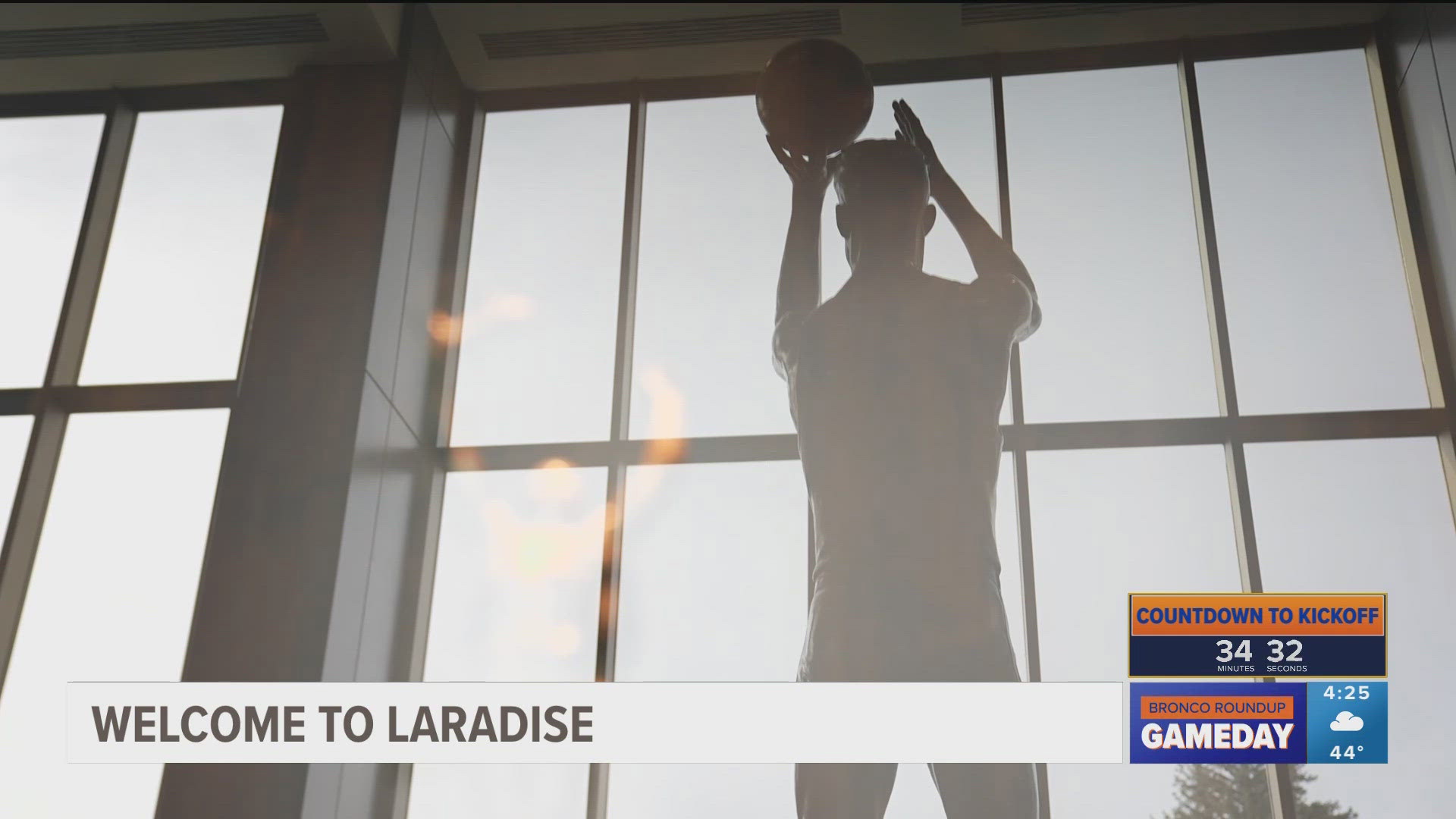BOISE -- A local judge who's heard death penalty cases and two of the most notorious recent cases in our area, the Daniel Ehrlick and Melissa Jenkins trials, tells KTVB about her own stories.
Judge Darla Williamson just retired and sat down to look back at what has not been an easy career. She was one of the first female attorneys and judges in our state, and it wasn't easy to get there with odds certainly against her in the beginning.
'Women were discouraged from going into law'
In the late 60's Judge Darla Williamson was studying at Willamette University; that's where she found her inspiration to study law.
I saw this student that was carrying a briefcase, and I thought, no one ever carries a briefcase, and I asked, who was she? And I was told that she was a female law student, Williamson said. I'd never imagined that I could become an attorney, and then I thought if she can do it, that's something I could do.
Williamson headed to the University of Idaho College of Law, one of two women in her class, During my first year of law school, I had a professor that told me that I should quit law school, go home, have children, get married... first get married and then have children. And I had an A in his class, and he's telling me that I should quit law school.
'Tough as nails'
She pressed on. In 1972, she passed the bar exam, but still hadn't by passed the criticism. But a Boise attorney known for advocating civil rights gave her a chance; she worked a satellite office in McCall.
I had a client walked in the door and he thought I was the secretary, and so he asked to speak to the attorney, so I told him, well I'm the attorney. He says, okay, well can you point me to where there are some male attorneys in town? Williamson said.
Williamson said that client ended up coming back; she was the only attorney in McCall working on a holiday. She says she went into her career path knowing she'd face obstacles, but says people became more receptive.
I think initially I felt that clients would not come to a female attorney because the perception is that we are weaker or couldn't be strong enough, and my observation of women attorneys are that they can be tough as nails and are very good advocates, Williamson said.
'I think once you become a judge, that carries a level of respect with it'
Fast forward about seven years and the gender judgments dwindled when Williamson started making her own judgments as a magistrate in Valley County.
Williamson explains why she wanted to be a judge: I think it's the ability to make positive changes in people's life, and to make decisions that can have a positive influence in society.
Now with more than 10 years as a 4th district judge in Ada County , Williamson is formally retired, though she's committed to working at the court part-time for the next five years. As a judge, she says the decisions can be difficult, but she works as hard as she can.
You're just a human being like every body else and you're put in this position, and you just try to do the best job you can, Williamson said. You try to get to know as much as you can about people and hopefully make the right decision that's going to be the best for everybody.
Memorable moments
I had an infraction trial one time as a magistrate judge, and I found the guy guilty, and I just beat myself up over that every once in a while because I think, you know, I should have found him not guilty, because I don't think he was guilty, Williamson said.
I'm here handling death penalty cases now, but that case is another case that stands out, Williamson said. I think the reason is because even infraction cases are very important to the defendant. I mean, they come to court, they want to be fairly treated, they want a judge that's going to listen their case.
A particularly shocking moment happened a couple years ago when a defendant made it into court with a container of gas and a match.
I sentenced him to the penitentiary, and then he started yelling. He started tossing the gas around and trying to light it. Fortunately, the bailiffs were able to take that from him, so there was no damage that was done, but that was pretty interesting, Williamson said.
'I knew this was an important case'
The last big cases of Williamson's career were those of Daniel Ehrlick and Melissa Jenkins. They were accused of killing Jenkins' son 8-year-old Robert Manwill. Jenkins pleaded guilty, and a jury found Ehrlick guilty after a six and a half week trial.
I think for any judge it would have been a difficult trial, Williamson said. I think for jurors and attorneys and judges involved in the cases like this, it's hard because at any moment you can just bring back into your mind images. Images of children, children who are deceased and images of how they were killed. You know, it's something we all have to live with.
Williamson sentenced Ehrlick to life in prison; with a pre-set plea deal, Williamson sentenced Jenkins to 25 years fixed.
Before law, there was nursing and an Air Force Reserves career
Williamson wasn't always set on getting a law degree. When she was in high school, she either wanted to be a teacher or a nurse. Nursing won out when she found out she could go to school for just $800.
Being an RN gave me the ability to join the United States Air Force Reserves during the Vietnam era and become a flight nurse, Williamson said.
Williamson took care of wounded airmen as they were being flown from one base to another. She says it had a big impact on her personal and professional life, even when she became a judge.
That was a profound experience on me, Williamson said. These young men were my generation, and normally I'm an upbeat person, and I can talk to people and they respond to that. But these guys were just so depressed. They were suffering from post traumatic stress. There was just a great sadness about them and what they'd been through.
I think that had a profound impact on me and also affected my ability in how I think I deal with people and deal with people who come in front of me. Because a lot of the people I see are suffering from real substantial hurtful issues and things that have happened in my life, Williamson said.
A judge, a nurse, a pilot...
Williamson is now retired, though she is still working at the Ada County Courthouse. She is handling her replacement's criminal cases for six months, and then she will work part-time for five years for an enhanced retirement.
Williamson also enjoys golfing (her first set of clubs was a retainer from a client during her first years practicing law), working out at the YMCA, hiking in the mountains, walking skiing, and taking her dogs for walks.
She also has her pilot's license, and once she's fully retired, hopes to travel around more on the plane she and her husband have. She also plans to sleep in more.
What's nice about trying to retire is for most of the time, I get to sleep in every morning. For me, that was the hardest part of my job, getting out of bed every morning, Williamson said.


